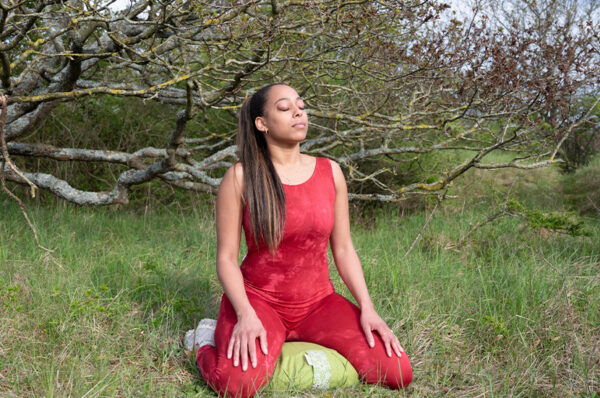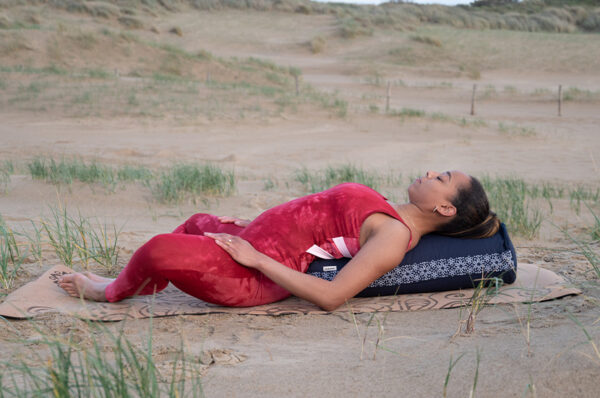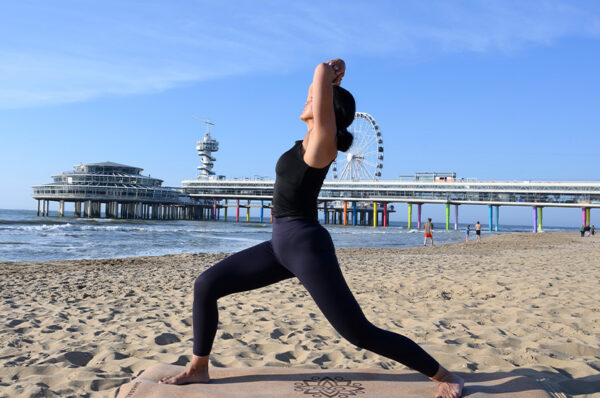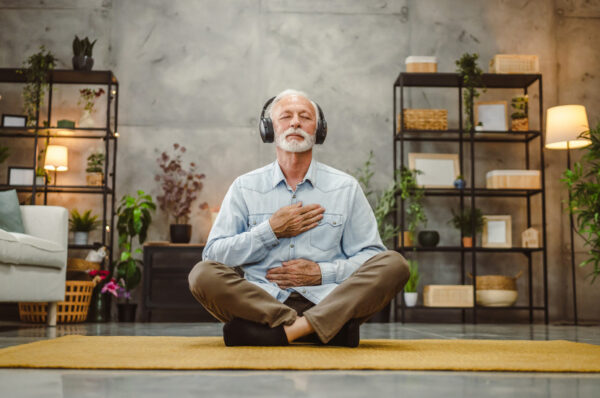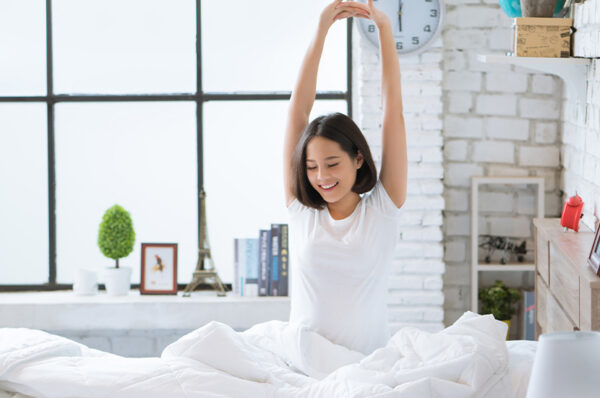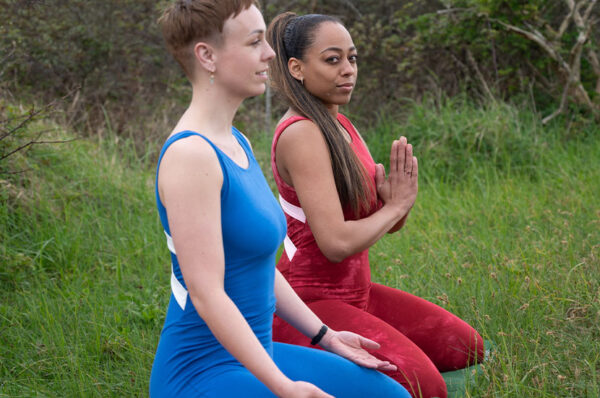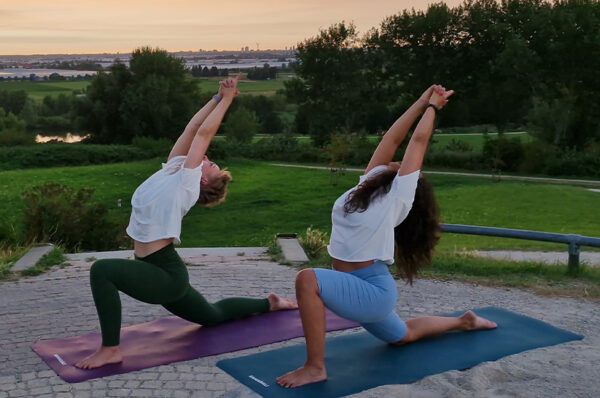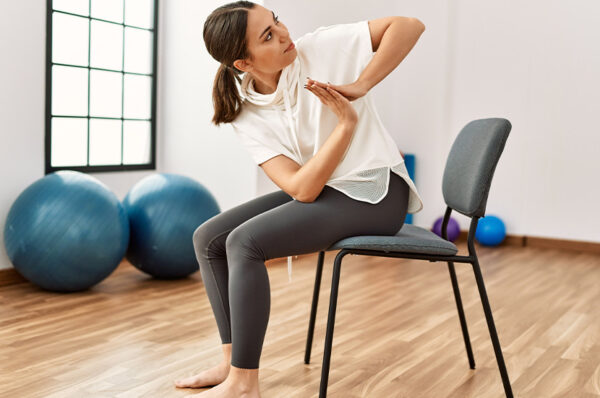If you are eager to delve deeper into the yoga practice, you’ve probably heard about the variety of styles it comes in.
One of these is restorative yoga, a different approach that focuses on practicing asanas and using props in the process.
If you want to discover more about this technique, you’ve come to the right place. Here, we will uncover all that concerns this type of yoga, including the poses, duration, and benefits you will experience.
Defining the term
Restorative yoga may be simply described as a gentle and incredibly supportive technique that all can practice.
It promotes a kind of passive healing, activating the parasympathetic nervous system – a part of the nervous system that controls basic bodily functions, especially those connected to rest and recovery.
As the name suggests, this practice assists in restoring these functions and, in turn, helps restore the balance.
As we already established, this is a restful practice that instructs you to hold the different restorative yoga poses (also known as asanas) for an extended period.
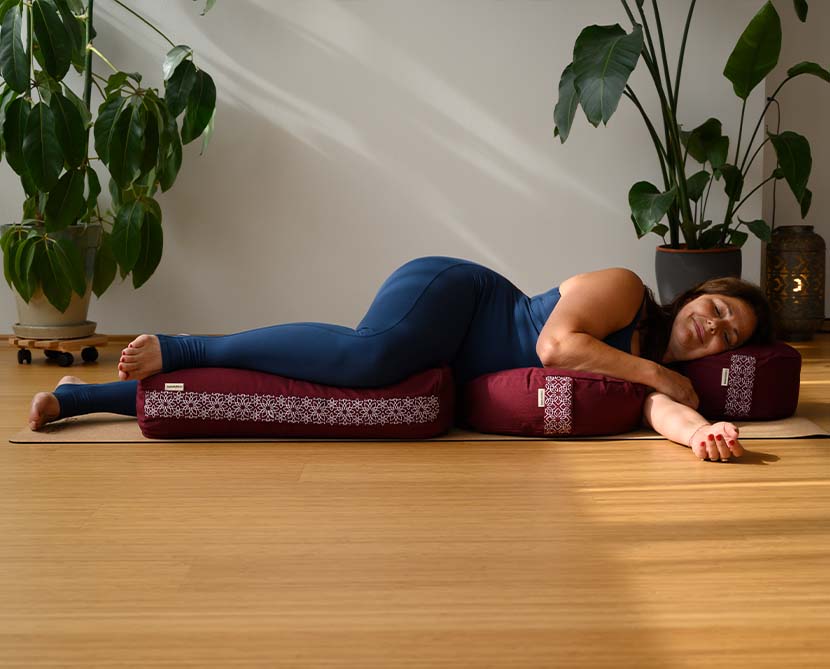
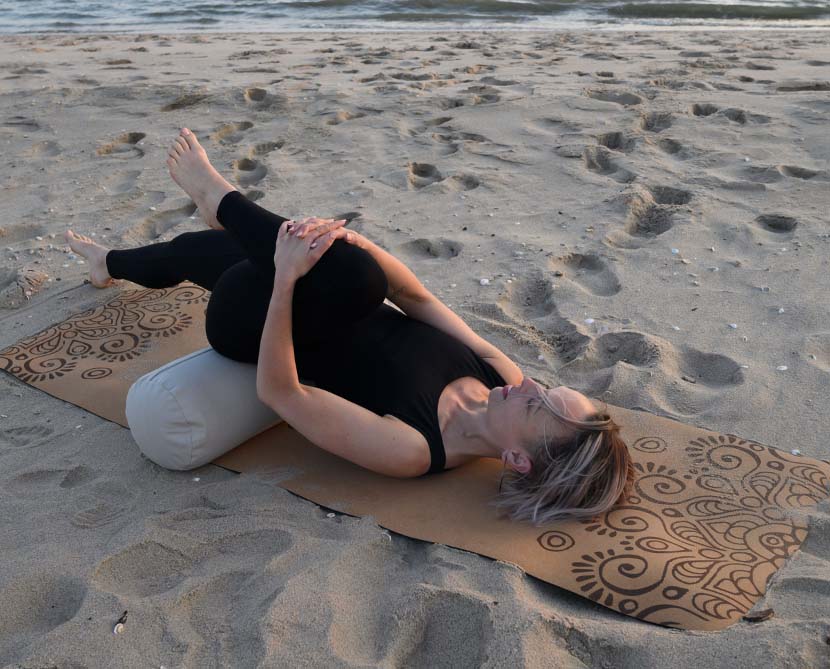
Moreover, it also encourages you to use different props, including blocks, blankets, and bolsters. Utilizing fewer asanas for a prolonged time means you will be given more time to rest and relax.
As a result, you will begin breathing deeper and more slowly, reduce your blood pressure, and feel an instant sense of calmness and relief.
Benefits of restorative yoga
Practicing this technique can be incredibly beneficial, just as any other type of yoga you will come across.
The majority of the benefits we have listed below are also backed-up by science, making restorative yoga one of the most beneficial practices you can indulge in.
Relaxes your body and mind
By reducing the cortisol level, you will also experience less stress and anxiety.
Soothes the nervous system
This yoga technique also has a beneficial impact on the nervous system. In other words, it helps shift the balance from fight-or-flight mode to a more relaxed response.
Boosts mood
Moreover, this practice also positively affects your mood, uplifting your spirits and allowing you to enjoy life more. This can also relieve anxiety and depression symptoms, boosting your overall mood.
Reduces chronic pain
Restorative yoga is also proven to reduce chronic pain. It usually affects the one associated with headache or back pain.
Promotes better sleep
Practicing yoga daily can also aid in improving the quality of your sleep. Consequently, you will wake up in the morning feeling rested and refreshed, having more energy to navigate through your daily tasks.
Improves well-being
Apart from the mental, this technique also has a significant effect on the physical aspect, as well. Devoting to continuous practice will lower the chances of fatigue and will increase your energy levels.
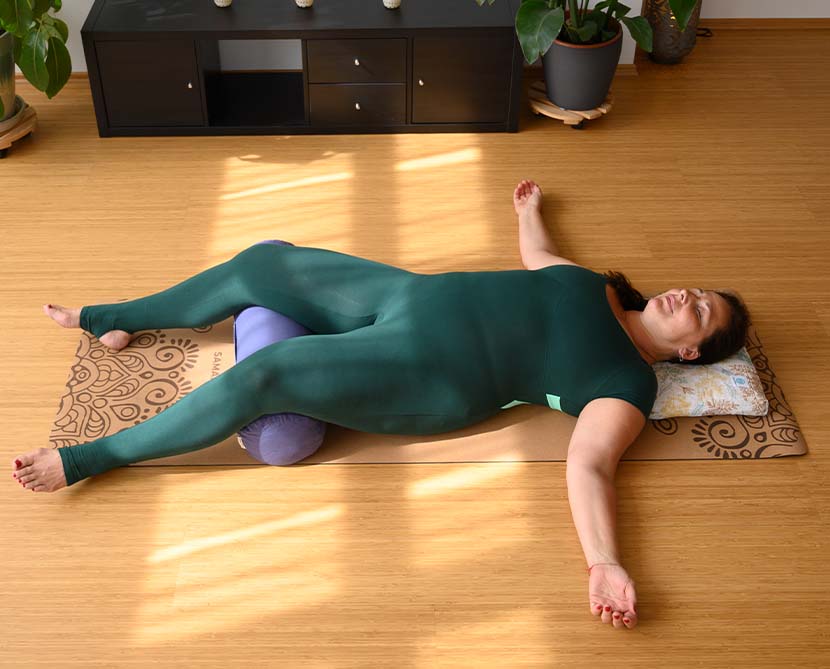
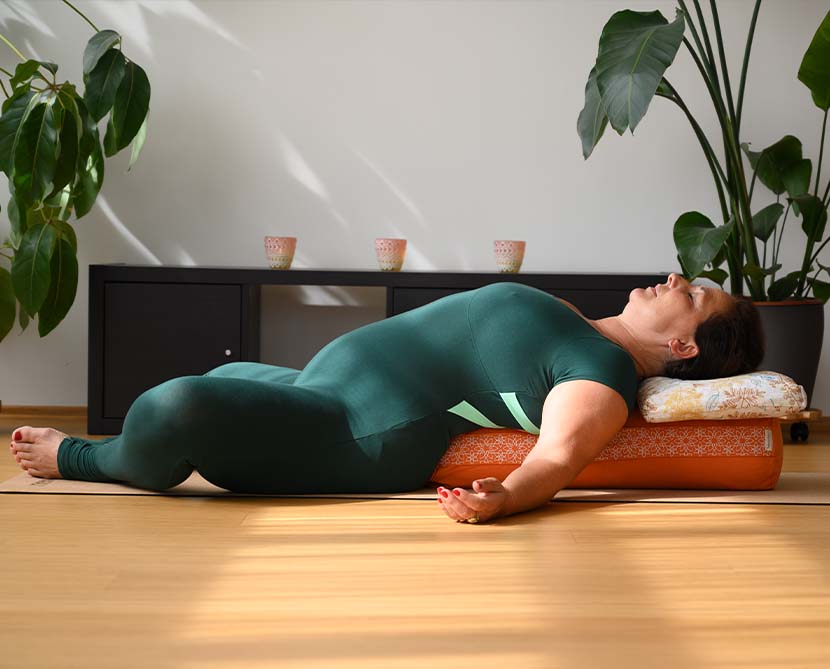
It’s safe to perform
One of the best aspects of doing restorative yoga poses is that they can be easily performed by all of you, regardless of your flexibility level, age, or condition.
Of course, some special circumstances will require that you are more mindful, but the point is this is ruled as a generally safe practice.
Because you can modify the asanas, the restorative technique can be practiced even during pregnancy.
Restorative yoga poses
Truth be told, this type of yoga can implement a variety of props and poses, as this is something it is notable for.
However, some asanas are more suitable for this technique than others, and we are going to have a look at them separately:
Fish pose
The fish pose is an excellent choice if your job requires sitting for much of your day.
Doing it will help elongate your spine, release the tension you’re feeling in your neck and shoulders, as well as open up your chest. Here’s how you can do it:
- Palace a bolster or folded blanket on the center of your mat and lay down so that your shoulder blades are on the blanket. Keep your legs folded or extended in front of you, depending on your preference. Rest your arms on the sides or extend them above your head.
- Start taking deep breaths and feel how the tension slowly leaves your body. Stay in this pose with your eyes closed for at least 10 minutes.
Child’s pose
The child’s pose is one we reckon you are all familiar with. It helps relieve stress and fatigue and assists in stretching your spine, hips, glutes, and shoulder muscles. To do this pose, you should:
- Kneel on the floor with your knees hip-width apart, and lower yourself behind on your heels. Place a blanket between your thighs for additional support, and lean forward with your hands extending in the same direction.
- Stay in this pose for around 5 minutes, inhaling and exhaling at even intervals as your palms are pressed against the floor.
Corpse pose
We advise practicing the corpse pose if you are searching for a stress and tension outlet. Also known as ‘savasana’, this pose promotes deep relaxation and wellness.
- Using a savasana pillow and a bolster, support your head and the back on the knees as you lay on the floor.
- Place your arms in a natural position alongside your body, and stay like this for about 10 minutes. Focus on taking deep breaths and releasing muscle tension.
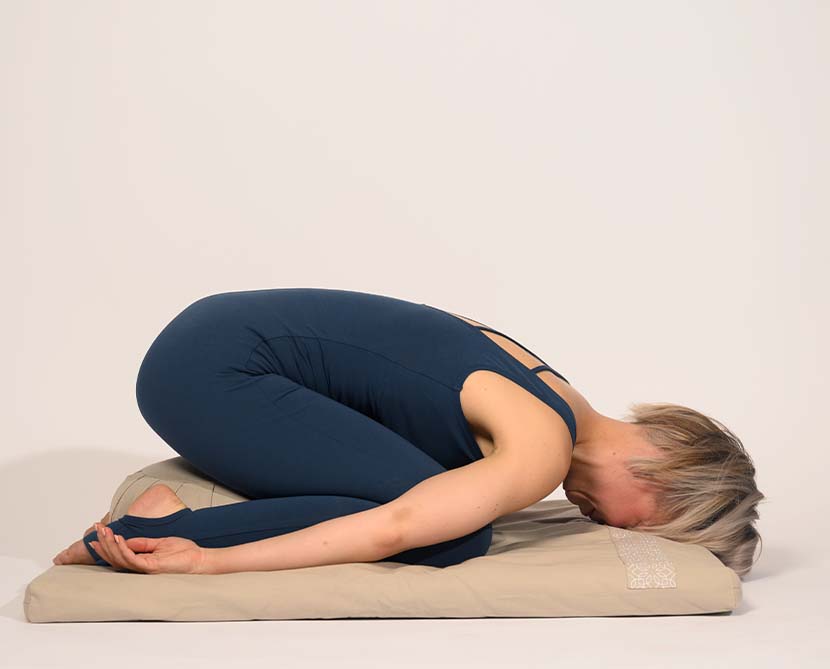
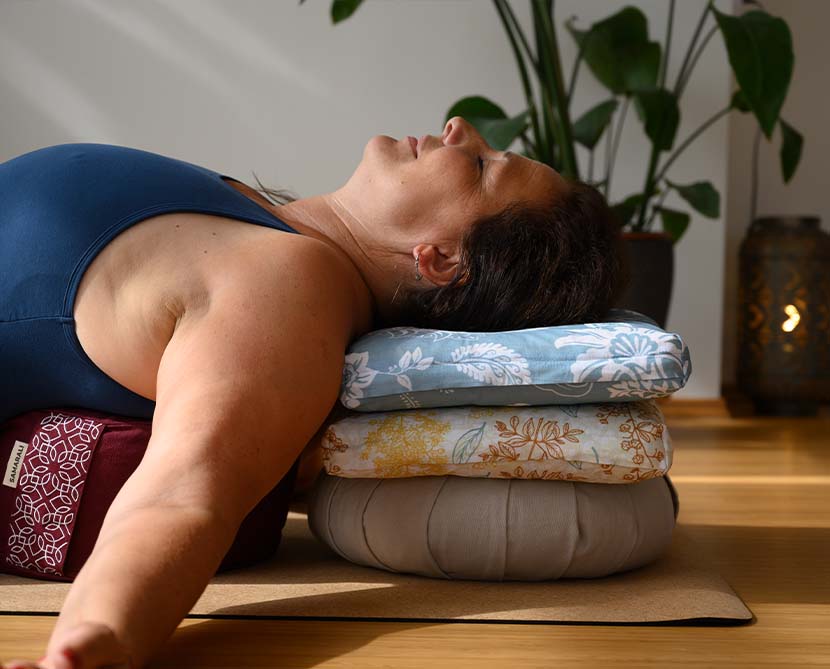
Restorative vs. Yin Yoga
For those of you who wonder about the difference between these seemingly-matching techniques, you need to know that, in fact, they greatly differ.
Although they both promote a slow-paced, stress-relieving practice, Yin is all about stretching and applying gentle pressure on certain tissues.
On the other hand, the restorative technique supports your whole body, allowing it to rest and heal.
Practice frequency
The beauty and convenience of doing restorative yoga is that you can practice it as often as you want.
Contrary to other exercises that require you to be mindful of the routine frequency, this one allows you to do it as often as every day.
So, depending on your needs, you can either form a daily schedule, or a once-to-twice-a-week routine, which will help you get the most out of it.
We hope learning more about the art of restorative yoga will inspire you to try this technique for yourself. But before you begin, don’t forget to gather all the equipment required for this practice.
You can easily do this by visiting our yoga shop and purchasing one of our yoga sets, a bolster, or any other prop you might need.
